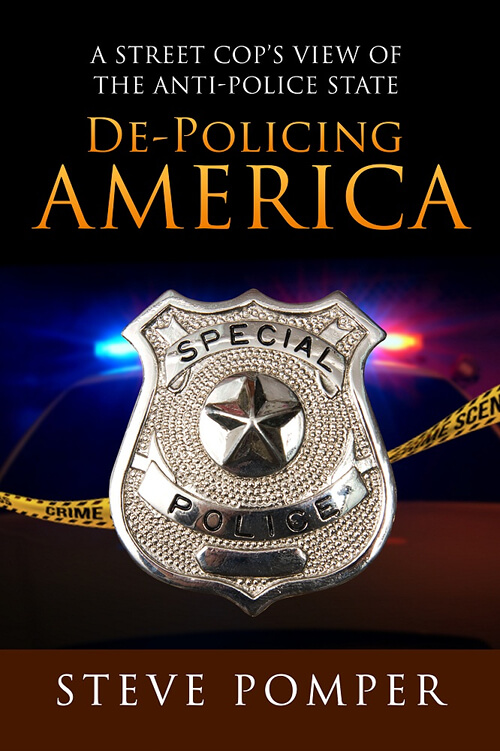Once again, as the proverbial broken record, or frustrated town crier, clarification must be made after a recent Seattle Times editorial failed to put the SPD officer DOJ lawsuit, brought for legitimate officer safety concerns, into an honest context. The Seattle Times editorial attempts to reduce the “complaining” officers to pathetic whiners simply resisting “reforms.” Well, what if there were no need for reforms? What if the people making the contentions of systemic and widespread police abuse were lying? What if people don’t know about these lies because the city’s only major newspaper refuses to provide its readers with a sustained, balanced perspective?
Not one place in this editorial is it mentioned that the DOJ’s initial studies were, to be generous, flawed—to be accurate, fraudulent. The inception of what led to a federal consent decree was tense, contentious and controversial. Here’s the federal formula, also used in many other cites: The DOJ comes to town, insults and lies about Seattle’s police officers’ “patter and practice” of using excessive force, issues a fraudulent report, which is debunked by an eminently credible source, and then the Seattle Times acts surprised, even indignant, when some officers express legitimate resistance to policies that may very well send them to their final assignment in that police precinct in the sky.
The Times, exhibiting its perpetual and profound bias, lack of accuracy, and lack of proper context toward issues supporting Seattle’s police officers, not only failed to mention anything about the initial controversy, it doesn’t mention that a Seattle University Professor’s more thorough studies debunked the DOJ’s findings. The professor’s results were published in an article titled, “Department of Justice owes the Seattle Police Department an apology.” The sub-heading tells the true story: “The U.S. Department of Justice’s probe of the Seattle Police Department stretches credulity with an analysis of questionable quality, says a Seattle University professor, Matthew J. Hickman.” Though this article was originally published as a, Special to the Times, the Seattle Times has since exhibited an odd aversion to evidence that would provide balance to this controversy and show support for the city’s police officers.
The Times, in cheerfully expressing how relatively “few” SPD officers are a part of the lawsuit, also fails to mention that, while the Seattle Police Guild leadership may oppose the specific tactic of bringing a lawsuit, they support the important contentions made within it, which alleges valid public safety concerns regarding the city’s new Use-of-Force policy. Further, they fail to inform their readership that the officers bringing the suit are being led by a highly educated officer who is a use-of-force expert, extraordinarily skilled in law enforcement defensive tactics, and having served as a leader in formally training Seattle police officers and others in the proper use of force for well over a decade. This is not the frivolous lawsuit the Seattle Times would have its readers believe.
The Seattle Times also fails to put into context what preceded the officers’ bringing the lawsuit. They don’t mention the intimidation tactics used by the department, and sadly the Guild, to keep more police officers from learning about or signing the lawsuit. Why don’t they provide the true context? Because it would undermine its mission of bias against police officers as brutal thugs, which, thankfully, most of the good citizens of Seattle know is a ridiculous fiction.
As mentioned on this blog several months ago, I wrote an article, as one of the signatories to the lawsuit, for the Seattle Times. I worked with one of their editors for over a month. During that month she said the Times was very interested in printing the perspective of the officers bringing the lawsuit. However, after more than a month of submissions, re-submissions, complying for requests for revisions, and having complied with formally citing the information I was using (yes, even though it was an opinion piece), the Times suddenly “declined” (read: refused) to print the article—after a month of jumping through their hoops! To date, I am not aware of any articles appearing in the Times that have presented the personal view of the police officers involved in the suit. The site, Crosscut.com , unlike the Seattle Times, and obviously interested in a story’s varied perspectives, printed a shorter version of the article intended for the Seattle Times.
It’s not surprising to read something in the Times that belittles or embarrasses this city’s police officers. Happens all the time. However, it is surprising that it happens with such consistency and that they are rarely called on it to any significant degree. But, then again, in a one-newspaper city, the opposition opinions become diluted across the myriad websites that do publish honest debate.
I suppose, in the end, this may be a self-correcting problem as the dwindling readership will eventually cause the few readers that are left to find alternatives for wrapping their salmon and lining their cockatoo cages.


0 Comments